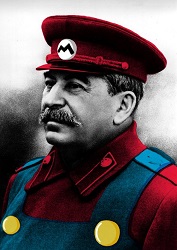0





















| Thumbs Up |
| Received: 3,683 Given: 4,085 |

Russian military a well-oiled machine in Crimea | ABQJournal Online
WASHINGTON – From the photographs we’ve seen of the Russian special operations, or “Spetsnaz,” troops that intervened in Crimea, several things are obvious: They’re secretive, moving without insignia and often covering their faces; they’re disciplined and they’re decisive.
The diplomatic response to the Russian intervention is continuing. But Pentagon officials are beginning to assess the military “lessons learned.”
The bottom line is that Russia’s move into Crimea was a study in the speedy deployment of special operations forces to achieve a limited objective.
“What has been most striking to me so far has been the apparent levels of discipline, training and cooperation among the Russian forces,” noted Paul Saunders, executive director of the Center for the National Interest, in an interview this week with the military blog War on the Rocks.
The Russians deployed quickly in the hours surrounding reports of their initial movement on Feb. 26. Two days later, when President Obama warned that there would be “costs” for invading Crimea, the Russian forces were already in place and the intervention was nearly a fait accompli.
The Russians are thought to have had roughly 15,000 troops in Crimea when the crisis began, and quickly added about 5,000, mostly special operations troops. The Russians are allowed up to 25,000 military personnel there under their 30-year lease of the Black Sea naval base at Sevastopol.
Military analysts note some interesting characteristics of the Russian deployment: President Vladimir Putin, a former KGB lieutenant colonel, chose something closer to a paramilitary “covert action” than a normal military attack. Because troops didn’t have Russian insignia, there was a thin veil of deniability, which the Russians exploited.
At a news conference March 4, Putin denied that Russian troops had invaded, despite photographic evidence to the contrary.
This “deniability” was maintained by Defense Minister Sergei Shoigu, who said on March 5 it was “complete nonsense” that Russian troops had invaded Crimea and that he had “no idea” how Russian military vehicles had gotten there.
These bland denials of reality were useful in several ways: They maintained a fig leaf of legitimacy for an illegal intervention; they allowed Russia a chance to de-escalate an operation that hadn’t officially been acknowledged; and they distanced Putin in case things went badly and Ukrainians were killed.
Putin also showed a notable willingness to take risks. So far, there has been almost no bloodshed between Russians and Ukrainians, but Putin couldn’t have known this when he began.
That’s why the precision and discipline of Russian forces were crucial. Their professionalism reduced the risk of an incident that could have spiraled out of control. Finally, Putin prepared a rationale for his intervention – along with the attendant propaganda. He insisted he was acting to protect Russian citizens and Russian speakers in Crimea.
His troops were welcomed by a generally supportive Crimean population, and his action was lauded back home. This model suggests that Putin might be prepared to move, similarly, to protect Russians in neighboring countries, such as eastern Ukraine or the Trans-Dniester region of Moldova.
Analysts think Putin would be less likely to move against neighboring states, such as Lithuania and Latvia, that have significant Russian-speaking populations – but are also NATO members. Such operations would require far more force – and would test NATO’s “Article 5″ commitment to U.S.-led mutual defense, a risk that’s probably greater than Putin is willing to tolerate
The well-organized Crimea operation also suggests improvement in the quality and training of the Russian military.
Their troops had operated with far less precision a decade ago in Chechnya and in the 2008 invasion of Georgia.
Russia has evidently been getting results for increased spending on its military: The 2012 edition of a survey by the International Institute for Strategic Studies estimated Russia would spend 3.78 percent of its GDP on defense in 2013, by far the highest amount in more than a decade.
This Russian army, in short, is not the one that proved so feeble in Afghanistan. It is well-trained and stealthy, and effectively uses a “small footprint.”
And Putin clearly wasn’t deterred by NATO military moves that signaled a commitment to protect member states – but didn’t convey a willingness to check Russian black operations in a friendly, neighboring region.















| Thumbs Up |
| Received: 1,364 Given: 933 |

I can tell this isn't a well researched article just by the fact it calls Lithuania a country with a significant Russian minority.
national motto - Nordic wannabe-ism



















| Thumbs Up |
| Received: 3,683 Given: 4,085 |
There are currently 1 users browsing this thread. (0 members and 1 guests)
 Türkiye
Türkiye
 България
България
 Ukraine
Ukraine
 Ukraine
Ukraine
 Australia & NZ
Australia & NZ
Bookmarks